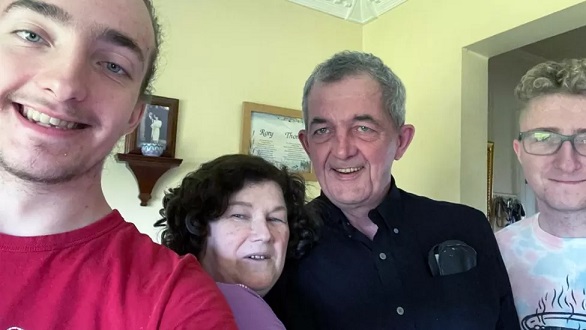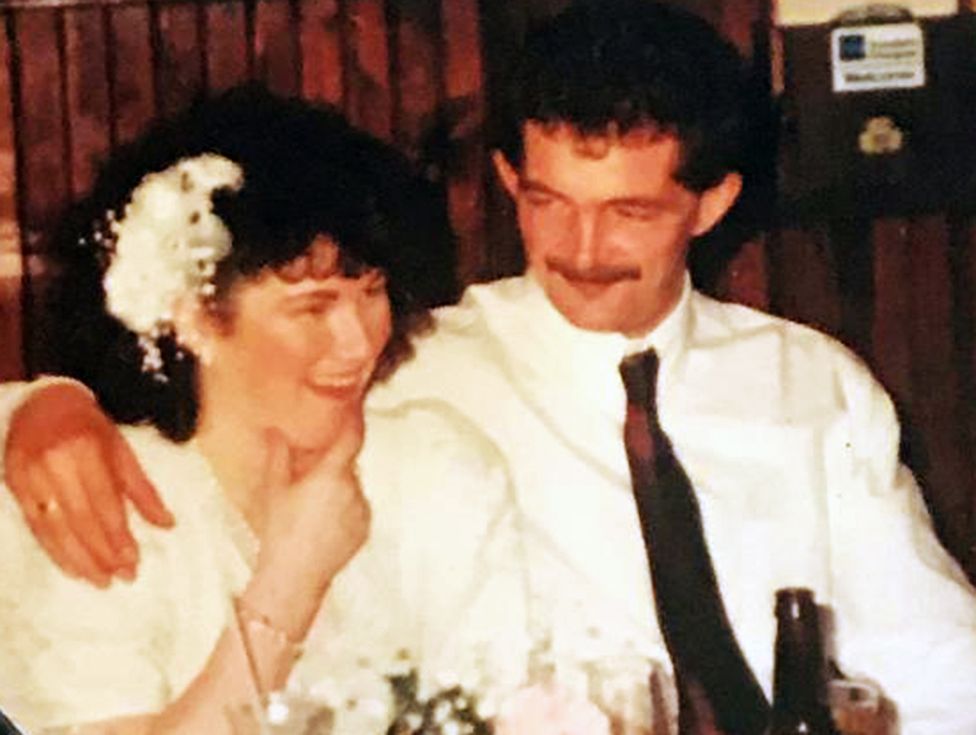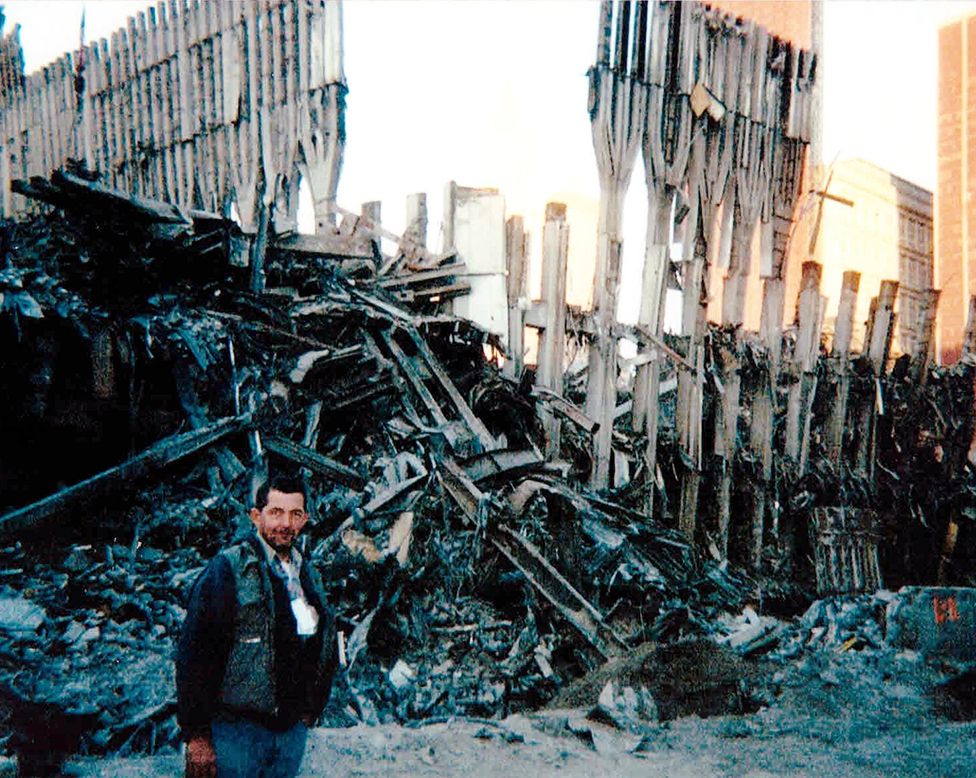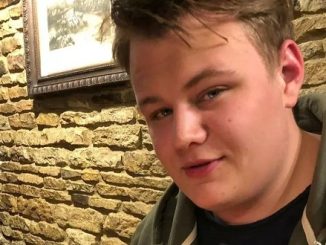
Decades after moving to the US, retired construction worker Rory McGrath was extradited to the UK to face trial for a 41-year-old crime. Eventually he was found not guilty.
Rory McGrath had just stepped through his front door carrying the morning newspaper when a dozen or so officers from the US Marshals Service arrived at his New York home with their guns drawn.
They ordered his wife and twin 18-year-old sons out of bed at gunpoint. It was May 2021 and New York was starting to emerge from Covid restrictions, but for McGrath and his family it was just the start of a “nightmare that has never ended”.
The officers were acting at the request of prosecutors in England. McGrath, a retired construction worker, faced extradition and trial in the UK over his involvement in a drunken street fight four decades earlier.
The story began in March 1980 when McGrath, an Irish-British national born in Leeds, was out drinking with friends. The 21-year-old, by his own admission, became involved in a drunken fight between two groups of young men. In his telling, he fled to a nearby pub when police arrived. “I’m not getting involved with the police,” he remembers thinking.
But British prosecutors alleged he was part of a group that assaulted an officer, who suffered a broken nose, cuts and bruising while attempting to restrain a suspect.
Five men were charged, including McGrath. Instead of facing justice, he fled to Ireland.
He says he absconded because he believed he was being “set up”. The case against him was based in part on the evidence of an off-duty officer, who has since died, who said he recognised McGrath running from the scene.
“I believe I was forced to abscond because [of] the simple reason they fabricated identification,” he says.
McGrath says that as an Irish national living in England in the 1970s and 80s, he faced “constant harassment”.
“All my life, since I can remember, [I was] constantly harassed by the English police, so I knew it wasn’t going to be a good outcome.”
His life in England was set against the backdrop of the IRA bombings of the 1970s. A series of high-profile convictions linked to some of the attacks – including the Guildford Four, Birmingham Six and the Maguire Seven – were later found to be miscarriages of justice, involving false confessions and police misconduct.
“Tensions were high, always,” says McGrath.
In 1986, after several years living in Dublin working as a carpenter, he went to the US on holiday.
“I was hearing a lot about it, so I went for a couple of weeks and I ended up staying for 12 years.”
He met his wife Alice in New York in 1990. They married in 1992, and 10 years later he returned to Ireland to successfully apply for US citizenship.

As a dual Irish-British citizen, he assumed that US authorities would have contacted the UK Home Office.
“I know that they knew where I was as early as 2002, for the simple reason all the paperwork from the citizenship went back to England.” he says.
The Home Office has declined to answer questions about the case.
McGrath says he did not view himself as a fugitive. He travelled to the UK on several occasions, using his own name and passport, including for his brother’s wedding in 1996.
While accepting he had absconded in 1980, McGrath says he had come to believe the matter was closed. He was never contacted by authorities and experienced no difficulties while travelling in the UK.
The first he knew of any extradition request was the US Marshals’ raid in 2021. But events had been set in motion six years earlier.
In 2015, a local neighbourhood police officer in West Yorkshire “became aware and revisited” an outstanding warrant for McGrath. The officer referred the case to the Crown Prosecution Service (CPS), which began extradition proceedings in 2016.
McGrath’s lawyer, Daniel Martin, says it is difficult to understand what motivated “this sudden need” to get McGrath back to face trial.
“The victim was a police officer and obviously a request was made by his police force,” he says. “It seems this has been sat on some cabinet somewhere gathering dust until one day someone picked it up and decided it was imperative [McGrath] be extradited.”
Under US law, people facing extradition are typically held in prison, except when there are “special circumstances” permitting their release. After McGrath’s arrest in May 2021, a judge granted bail, and said he presented no real flight risk or danger to the public.
The judge also acknowledged that McGrath was at greater risk from Covid-19 due to respiratory complications, some of which related to time spent volunteering at the site of the World Trade Center after the 9/11 terror attacks. He was among the first to comb through the scene of destruction and it left a lasting impact.
“You’d walk into an office, there would be a coffee cup half-drunk, a doughnut with a bite taken out of it,” he says. “It was eerie.”

After 15 months of house arrest – largely confined to his home on a quiet residential street in Pearl River, New York – McGrath was flown to the UK in July 2022. He spent seven months in HMP Leeds awaiting trial.
In February this year, a jury rejected the prosecution case and found McGrath not guilty. He had always maintained his innocence.
According to local media, after McGrath was acquitted, the judge told jurors that he did not know why the case had been brought after so many years: “We have worse things to deal with, if I can put it that way,” he said.
Martin says he has “never seen such a flagrant waste of taxpayer resources as in this case”.
When McGrath was arrested in the US, courts in England and Wales were experiencing unprecedented delays and a backlog of cases that had grown during the pandemic.
Martin questions why prosecutors chose to “spend so much money and time and effort bringing back Mr McGrath for an allegation, which by any standards was low on the Richter scale of assaults”.
He claims the prosecution case was flawed. It relied in part on the assault victim identifying McGrath after a description had been circulated and he was in custody – a process which is no longer permitted. Several other witnesses had died or could not be found by police.
CPS guidance states that extraditions should only be used where it is “clearly appropriate and proportionate”.
It maintains that assaults on police officers are a serious matter regardless of when they happened, and that it was right to put all the evidence before a jury: “Two judges, including the trial judge, ruled that there was no abuse of process by the prosecution in this case.”
West Yorkshire Police said its pursuit of McGrath was “appropriate” and a consequence of him “deliberately avoiding the criminal justice process by failing to attend court at the time he was charged”.
McGrath is now back with his family in the US. He says the case has had a “devastating” impact on his wife and sons.
“There are multiple victims here,” he says. “It’s been very stressful for everybody.”
He is slowly adjusting to life back home and attempting to put the “pure hell” of the past two years behind him.
“It’s like Ground Zero – I don’t care to think about it, but it’s always going to be there.”
Source: bbc.co.uk






Be the first to comment